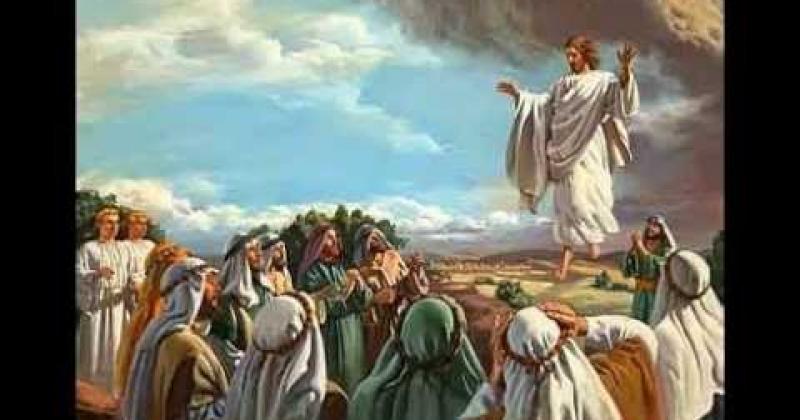Why did Jesus have to ascend into Heaven so that his resurrected body would be hidden from our natural sight? I’ve squirmed with guilt over asking the question. Hadn’t Jesus already done more than enough for us by suffering, dying, and rising? Wasn’t he entitled to a glorious homecoming at the right hand of the Father — and maybe a bit of a break from us and our brokenness?
St. Thomas Aquinas also wondered about Jesus’ earthly departure, even daring to suggest that “it would seem that it was not fitting for Christ to ascend into heaven” (Summa Theologica 3.57.1). After all, going back to heaven didn’t make Christ more perfect or powerful than he already was.
And, St. Thomas continues, if “the Son of God took human flesh for our salvation … it would have been more beneficial for men if he had tarried always with us upon earth” (Summa Theologica 3.57.1).
If Jesus had remained on Earth after his resurrection, everything would have worked out much better than it has over the last 2,000 years. No wars, no tears; no hunger, strife, sickness, loneliness or death. Justice and peace would have kissed into blossom a new Eden right here, a paradise we’d be savoring this very minute.
Or would we?
Having raised the issue, St. Thomas digs a bit deeper, and he concludes that “Christ’s Ascension into heaven, whereby he withdrew his bodily presence from us, was more profitable for us than his bodily presence would have been” (Summa Theologica 3.57.1).
As Jesus himself had said before his death, “I tell you the truth, it is better for you that I go. For if I do not go, the Advocate will not come to you. But if I go, I will send him to you” (John 16:7).
Christ’s Ascension opened the way for the Holy Spirit to be poured out at Pentecost. But if we’d clung to Jesus, hoping to make him stay with us on our terms (as Mary Magdalene tried to do after the Resurrection), we would have been unable to welcome the Spirit.
“You cannot receive the Spirit, so long as you persist in knowing Christ according to the flesh,” St. Augustine insists. “But when Christ withdrew in body, not only the Holy Ghost, but both Father and Son were present … spiritually” (Tractates on the Gospel of John, 94; quoted in Summa Theologica 3.57.1).
The Spirit gives us eyes of faith that can see the Lord beyond the narrow spectrum of our physical vision. And Jesus isn’t merely waving at us from above. Rather, he draws us to himself. “In Christ, true God and true man, our humanity was taken to God,” Pope Francis reminds us. “Christ opened the path to us. He is like a roped guide climbing a mountain who, on reaching the summit, pulls us up to him and leads us to God.”
Believing that Jesus “would not leave them orphans” (John 14:18), the Apostles were able to return to Jerusalem “with great joy” (Luke 24:52). That joy would seem “a little odd,” Pope Francis admits, since “when we are separated from our relatives, from our friends, because of a definitive departure and, especially, death, there is usually a natural sadness in us since we will no longer see their face, no longer hear their voice, or enjoy their love, their presence.”
But faith assured the Apostles that Christ “stays with them forever,” Pope Francis stresses. “(He) does not abandon them and in the glory of the Father supports them, guides them and intercedes for them.”
As Christ ascended from the Mount of Olives and into the Father’s arms, the Apostles could exult, recalling the promise the Lord had made even before his crucifixion: “I will see you again, and your hearts will rejoice, and no one will take your joy away from you” (John 16:22).
